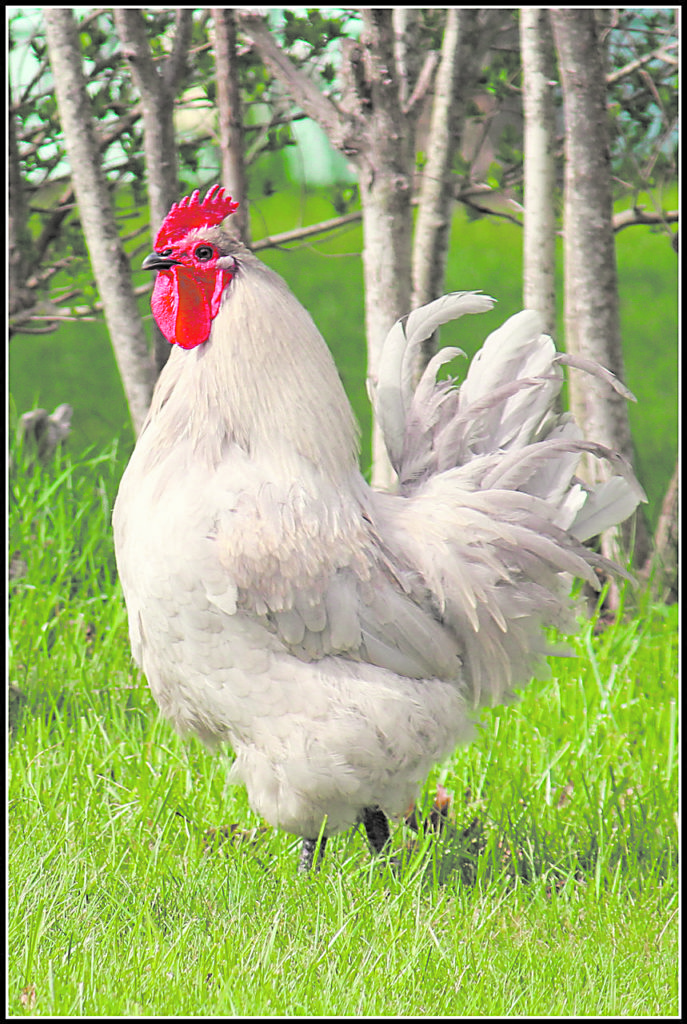The risk of Highly Pathogenic Avian Influenza (HPAI) remains high in Maine. As of mid-April, dozens of cases have been found in six counties.
The current outbreak is spreading across the country primarily due to the migration of wild birds. The disease is spread directly through wild bird droppings and indirectly through feed, water sources, and bedding that may have been exposed to the droppings.
Two bald eagles in Maine have tested positive as they prey on wild waterfowl. Other scavengers, like American Crows, are likely to have confirmed cases soon.
According to the Maine Audubon website, avian flu poses a serious risk to domestic fowl such as chickens, turkeys, pheasants, quail, domestic ducks, geese, and guinea fowl.

Domestic fowl like these need to be protected from exposure to Avian Flu.
It is not known to affect songbirds or other ‘feeder birds’ so there is no risk to those groups right now. It is not necessary to take down bird feeders or to stop feeding wild birds, unless you also take care of poultry. (see Sidebar on Avian Conjunctivitis)
Because the virus is prevalent in the environment in wild birds, flock owners need to prevent contact between their birds and wild birds. Anyone raising birds, either commercially or as a backyard flock, is encouraged to keep their birds inside to minimize risk of exposure.
To report sick birds or usual bird deaths, contact the state veterinarian’s office at 207-287-7615 or the USDA at 1-866-536-7593.
Symptoms of HPAI in birds include sudden unexplained death, lack of energy and appetite; decreased egg production or soft-shelled eggs or misshapen eggs; swelling of the head, comb eyelids, wattles, and hocks; purple discoloration of wattles, comb and legs; nasal discharge, coughing, and sneezing; incoordination or diarrhea.
While this strain of avian flu has not been found in people, if you think you have been exposed, the Maine CDC’s Health and Environmental Testing Laboratory is prepared to process samples and quickly provide results for anyone potentially exposed to the virus.
This disease is easily spread between feeder birds, especially at tube feeders.
|
Avian Conjunctivitis Maine Audubon reports that in addition to an increase in avian flu cases, the number of avian conjunctivitis cases (Mycoplasma gallisepticum or “finch eye disease”) has risen around the State. This disease is easily spread between feeder birds, especially at tube feeders. Avian conjunctivitis is most common in House Finches, though cases in gold- finches and Evening Grosbeaks have been reported lately. If you see birds with swollen or crusty/pink eyes, take your feeders down, discard the seed and clean the feeder thoroughly. Stop feeding for a week or two – so the sick birds don’t come right back to that feeder. |


